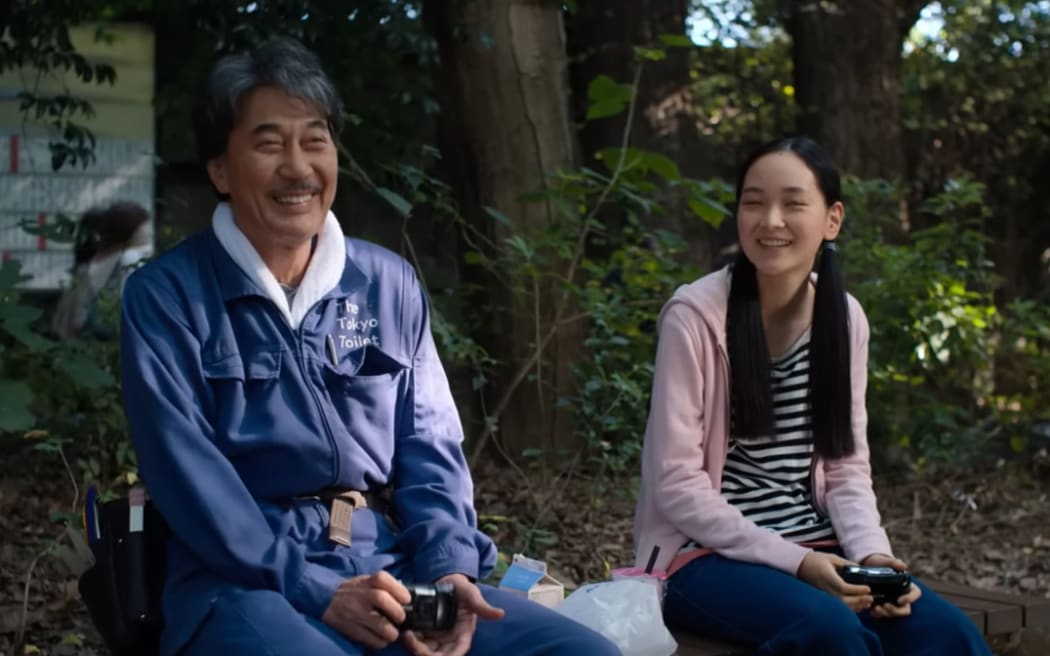German director Wim Wenders is yet another cinematic Old Master making some of his best work at the moment.
Following in the footsteps of Martin Scorcese, Ken Loach, Ridley Scott and Hiyao Miyazaki, Wenders’ latest – Perfect days - is an extraordinary example of both good luck and good management.
Originally the German auteur of classic dramas such as Paris Texas and Wings of Desire, and documentaries The Buena Vista Social Club and 3D ballet extravaganza Pina was invited to make four short documentaries about Tokyo’s famous public toilets.

Photo: Screenshot
Wim offered to make one full drama on the subject instead. The slightly bemused Japanese producers agreed.
Wenders then scribbled a one-page outline and sent it to his favourite actor – Japanese star Koji Yakusho, best known for that 1996 charmer Shall We Dance?
Yakusho said yes, and then delivered one of the best performances of the year.
But I’m getting ahead of myself. The story of Perfect Days is as simple as a one-page outline - on paper at any rate.
Middle-aged Hirayama lives alone, he cleans upmarket toilets for a living, and his days follow a set pattern from dawn to bedtime. Wake up, clean teeth, water your plants, get in the van to go to work, put on a cassette.
Yes, cassette. Like all films about aging characters these days, old technology has to be explained to young folks.
And for people of a certain age, once you hear the first couple of tracks on Hirayama’s mix-tape – Lou Reed’s ‘Perfect Day’, Otis Redding’s ‘Dock of the Bay’ – you have a pretty good idea who else is going to show up.
Patti Smith’s ‘Redondo Beach’, the Kinks’ ‘Sunny Afternoon’, Van Morrison ‘Brown Eyed Girl’ all combine to give a tone of nostalgia, but not bitterness or even regret.
For all his solitary ways and minimal social life, Hirayama seems happy enough with his life. Wenders’ challenge is to reflect this without boring the pants off us.
The thing is, Hirayama’s not bored. He likes the slightly irritating kid he works with. He likes the kid’s girlfriend, particularly when she proves sound on Patti Smith.
He likes taking photos of his favourite trees in the park where he has lunch. But that uneventful life is about to be disrupted.
His teenage niece suddenly shows up, having run away from home. They haven’t seen each other for years - it seems Hirayama and his sister have been estranged all that time.
Hirayama tells Niko she can stay as long as she likes. But now for the first time we start to wonder about Hirayama’s past. Who is he? How did he get here?
And is he really as content as he seems?
Any questions we might have are entirely down to the central performance. The wonderful Yakusho is particularly good at getting things across without apparently doing anything.
It’s not true, of course. He’s working all the time, even if you don’t see it until the final breathtaking shot – is he laughing? Is he crying? What’s going on?
Koji picked up Best Actor at last year’s Cannes Film Festival, and quite right too. He makes this year’s Oscar nominees all look like runners-up.

